News
Campden announces 3D printing seminar
18 Apr 2019Campden BRI has begun a research project to assess and evaluate how 3D printing applications could benefit the food industry.
Ingredient scientist, Gael Delamare, who is leading the team, said: “There have been major steps forward in 3D-printing in recent years and it has made a huge difference to many industries. However, applying the technology to the food sector isn’t straightforward.

"There are many factors to consider such as shelf-life, microbiological contamination, printing temperature, textures, rheology and ultimately whether different foodstuffs even lend themselves to being printed," she continued. "All of these issues need to be catered for in order to meet the expectations of the consumer and to do so safely.”
3D-printing of food is a rapidly growing technology, and new printers that can be used for different types of food materials, such as paste-type materials which include chocolate, vegetable and meat purees, pancake batter, cream, cakes, and biscuits, are now becoming available. Furthermore, the 3D-printing technology is capable of manufacturing product structures which can’t or are difficult to achieve using conventional technology.
Campden BRI’s project aims to provide an objective and independent evaluation of the capabilities and limitations of 3D printing technology through practical trials on a wide range of food materials. The team is working on a range of products and areas, including the potential of the technology for personalised nutrition based on the dietary requirements of different consumers groups - such as vitamin D, calcium and protein fortification for the elderly population.
Food could potentially be personalised further for specific deficiencies including anaemia, lack of essential fatty acids and dietary fibre. The project will also use an X-ray micro-CT scanner to scan simple and complex designs to explore the scope of the possible structures and shapes that could be replicated by printing food. The modification of rheological properties to improve printing quality will also be examined.
Delamare added: “3D-printing may also have benefits for reducing process development and NPD times. Food waste could also be reduced as perishable products, which would otherwise decline in quality, could be printed on demand. The project will explore the challenges and potential of its application in the food industry. We’ll be reviewing the 3D-printing technologies, conducting practical trials and developing new personalised products in terms of shape, flavour, colour and nutrition.”
As part of the research project, Campden BRI is also hosting a seminar, with their specialists covering subjects like consumer perception, printable ingredients, the importance of rheology in 3D printing, food safety, shelf-life, legal considerations, and ingredient issues and limitations. In addition, industry speakers will discuss important subjects such as cellulose as an edible ingredient, personalised food for elderly consumers and the use of insect materials in the production of sustainable 3D-printed food.
The seminar takes place on Thursday 20 June at Campden BRI.
Related news
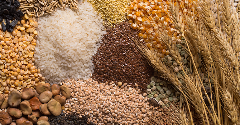
Sustainable grains present a healthy growth opportunity
3 Oct 2024
Food insights provider SPINS unveils the latest trends in the sustainable grains field, exploring how seven leading grains show healthy growth despite challenges in the global value chain.
Read more
Will we see a wave of NPD that focuses on insulin management?
1 Oct 2024
As a new study finds protein and fats can help manage insulin, food manufacturers are building on emerging GLP-1 platforms and supporting nutritional guidance.
Read more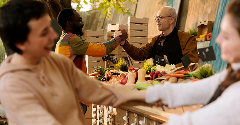
New environmental food scoring standards emerge
30 Sep 2024
EIT Food and Foundation Earth collaborate to launch environmental food scoring for products entering the global supply chain.
Read more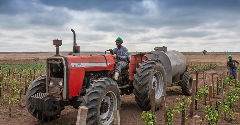
Africa progresses with food transformation strategy
19 Sep 2024
Large-scale efforts are underway to drastically change the African food sector with a $61 billion (€55 bn) set of proposed transformation plans to be implemented across forty countries. Yet there are concerns that this initiative severely jeopardises s...
Read more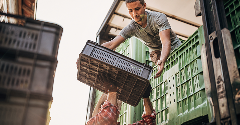
European Commission releases new supply chain recommendations
6 Sep 2024
The European Union’s (EU) legislative arm publishes its latest guidance on protecting the market’s food supply chain against current and future crises.
Read more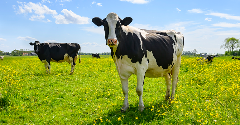
Tesco trials methane mitigation supplement for dairy cattle
5 Sep 2024
Tesco is trialing a methane-reducing feed supplement for one of its key UK dairy farms, sustainable UK milk producer Grosvenor Farms.
Read more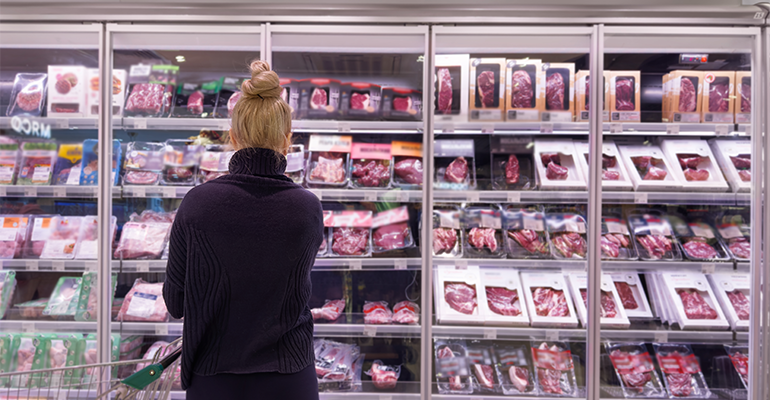
European consumers want more freedom to choose biotech-based food
3 Sep 2024
Survey findings point to growing levels of interest in cultivated meat as European consumers say they want the freedom to choose the lab-based products.
Read more
Will ‘foie gras’ become the EU’s first approved cultivated meat?
20 Aug 2024
French startup Gourmey has submitted its cultivated foie gras for approval in the European Union (EU), signalling the first application of its kind in the region.
Read more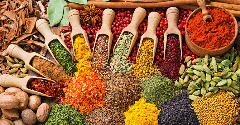
Europe gravitates to African spices
19 Aug 2024
Shipping delays, limited production output and climate change impact Europe’s spice supply, creating opportunities for African brands to enter the captive market.
Read more
Paris Olympics: Food and beverage brands champion health, fun, and sustainability
5 Aug 2024
Food and beverage brands are aligning with the Paris Olympics 2024 Food Vision, which emphasises sustainability, local sourcing, and plant-based diets.
Read more